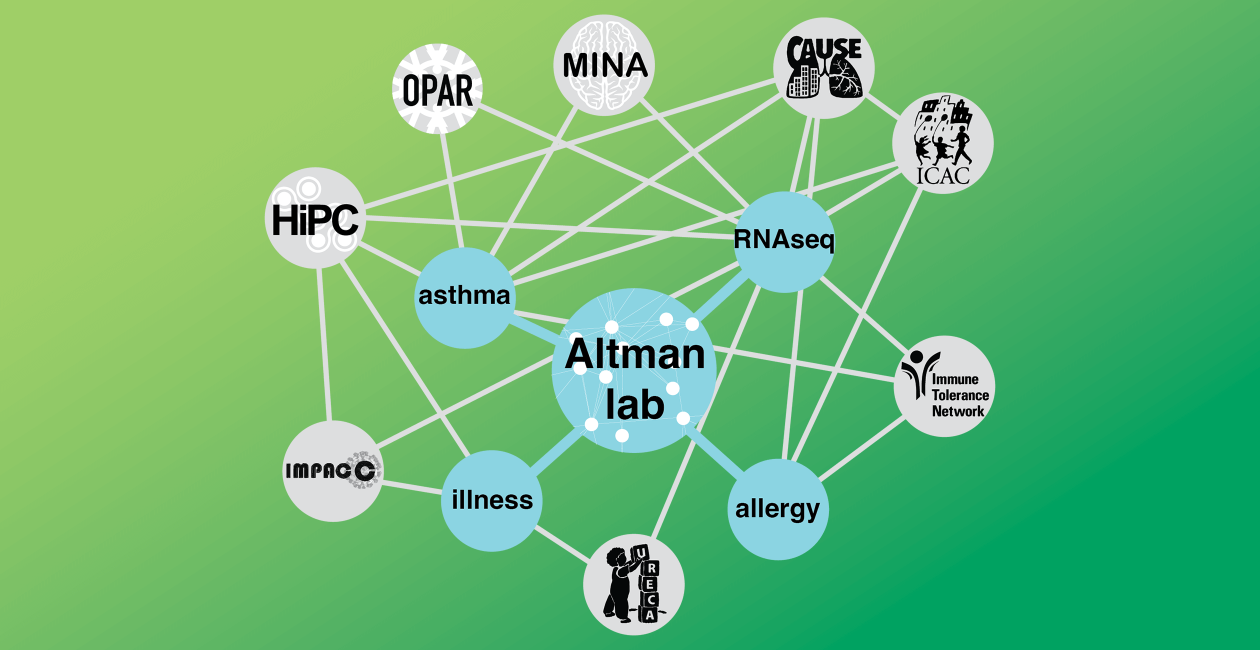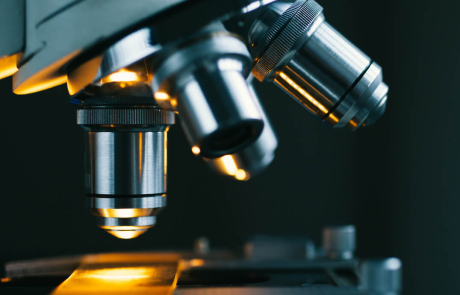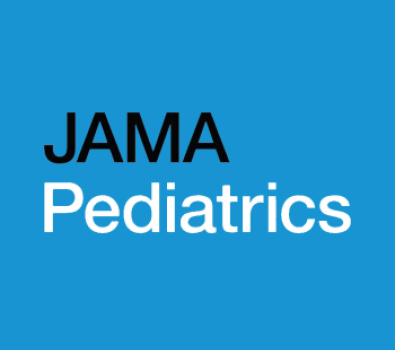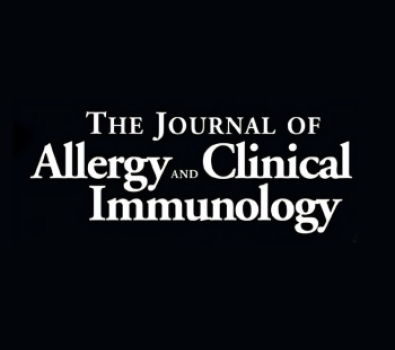Amongst other projects, our lab works within 3 groups, funded by the National Institute of Allergy and Infectious Diseases (NIAID):
- The National Institutes of Health: the Inner-City Asthma Consortium (ICAC)
- The Immunophenotyping Assessment in a COVID-19 Cohort (IMPACC)
- The Immune Tolerance Network (ITN)
- the Allergic Diseases Cooperative Research Centers
In studies with these collaborators, we use network analysis techniques such as cell-deconvolution and modular analysis to reduce the dimensionality of complex data, while simultaneously focusing on the salient elements of the immune response (Chaussabel, Baldwin 2014; Obermoster et al 2013; Li et al 2014). Collaborations like these help understand complex diseases while laying the groundwork for the discovery of new treatment approaches.
Genome transcriptional profiling and genome sequencing technologies are powerful approaches to identify novel biomarkers and mechanisms of immune mediated diseases. These technologies generate huge amounts of biological information and require sophisticated computational tools to understand molecular pathways of the immune system in health and disease.
Much of the lab's work focuses on molecular profiling of human respiratory samples collected during flares of disease, such as asthma exacerbations, respiratory infections, and allergic reactions. Furthermore, the group's work seeks to both develop and understand personalized approaches to the use of immune based therapeutics in these diseases.


Matthew C Altman, MD, MPhil
Lab Members

Courtney Armour, PhD

Basilin Benson, MS

Madison Cox, PhD

Kim Dill-McFarland, PhD

Naresh Doni Jayavelu, PhD

Dane Grosvenor, MS

Max Segnitz, PhD

Featured Publications
-
Nasal and blood transcriptomic pathways underpinning the clinical response to grass pollen immunotherapy.
J Allergy Clin ImmunolAltman MC, Segnitz RM, Larson D, Jayavelu ND, Smith M, Patel S, Scadding GW, Qin T, Sanda S, Steveling E, Eifan AO, Penagos M, Jacobson MR, Parkin RV, Shamji MH, Togias A, Durham SR -
Associations between outdoor air pollutants and non-viral asthma exacerbations and airway inflammatory responses in children and adolescents living in urban areas in the USA: a retrospective secondary analysis.
Lancet Planet HealthAltman MC, Kattan M, O'Connor GT, Murphy RC, Whalen E, LeBeau P, Calatroni A, Gill MA, Gruchalla RS, Liu AH, Lovinsky-Desir S, Pongracic JA, Kercsmar CM, Khurana Hershey GK, Zoratti EM, Teach SJ, Bacharier LB, Wheatley LM, Sigelman SM, Gergen PJ, Togias A, Busse WW, Gern JE, Jackson DJ, National Institute of Allergy and Infectious Disease's Inner City Asthma Consortium -
Mepolizumab for urban children with exacerbation-prone eosinophilic asthma in the USA (MUPPITS-2): a randomised, double-blind, placebo-controlled, parallel-group trial.
LancetJackson DJ, Bacharier LB, Gergen PJ, Gagalis L, Calatroni A, Wellford S, Gill MA, Stokes J, Liu AH, Gruchalla RS, Cohen RT, Makhija M, Khurana Hershey GK, O'Connor GT, Pongracic JA, Sherenian MG, Rivera-Spoljaric K, Zoratti EM, Teach SJ, Kattan M, Dutmer CM, Kim H, Lamm C, Sheehan WJ, Segnitz RM, Dill-McFarland KA, Visness CM, Becker PM, Gern JE, Sorkness CA, Busse WW, Altman MC, US National Institute of Allergy and Infectious Disease's Inner City Asthma Consortium. -
Development of a fixed module repertoire for the analysis and interpretation of blood transcriptome data.
Nat CommunAltman MC, Rinchai D, Baldwin N, Toufiq M, Whalen E, Garand M, Syed Ahamed Kabeer B, Alfaki M, Presnell SR, Khaenam P, Ayllón-Benítez A, Mougin F, Thébault P, Chiche L, Jourde-Chiche N, Phillips JT, Klintmalm G, O'Garra A, Berry M, Bloom C, Wilkinson RJ, Graham CM, Lipman M, Lertmemongkolchai G, Bedognetti D, Thiebaut R, Kheradmand F, Mejias A, Ramilo O, Palucka K, Pascual V, Banchereau J, Chaussabel D -
Transcriptome networks identify mechanisms of viral and nonviral asthma exacerbations in children.
Nat ImmunolAltman MC, Gill MA, Whalen E, Babineau DC, Shao B, Liu AH, Jepson B, Gruchalla RS, O'Connor GT, Pongracic JA, Kercsmar CM, Khurana Hershey GK, Zoratti EM, Johnson CC, Teach SJ, Kattan M, Bacharier LB, Beigelman A, Sigelman SM, Presnell S, Gern JE, Gergen PJ, Wheatley LM, Togias A, Busse WW, Jackson DJ









